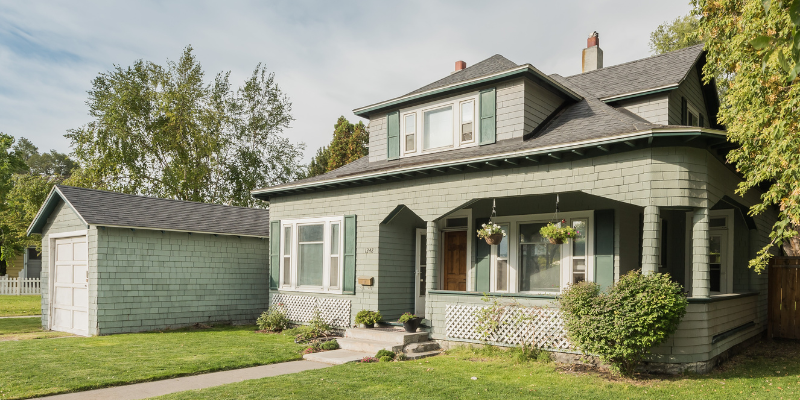
Understanding Probate Laws in Florida: A Comprehensive Guide
Knowing the state’s probate laws is necessary for a Brandon, Florida, resident during the probate process of a home’s estate. Probate is the process by which the courts supervise the distribution of a deceased person’s estate.
In Florida, debts and taxes must be settled before any property is distributed to the heirs. The probate laws of the state of Florida dictate the manner of property distribution, whether a will exists or not, which is relevant to homeowners in Brandon going through this process.
As usual, the executor named in the will is the one who files the petition with the court to start probate proceedings, but in the absence of a will, the court will designate an administrator. Florida is known to have specific rules that concern homestead properties, which may affect the duration of your stay in a house while the probate is pending.
Being well-versed in these laws allows one to manage matters like compliance with the creditors’ claims and observing deadlines and other requirements presented in the Florida statutes. Certain legal factors, like summary or formal administration, may also be relevant depending on the estate’s value and complexity. Therefore, having an attorney who practices in Brandon, yet is well-versed in state laws, is very important.
Revival Homebuyer offers a fast and hassle-free solution for selling a home in probate in Brandon, Florida. We handle the details, work with your timeline, and provide fair cash offers, helping you avoid delays and easily navigate the legal process.
Living in a House During Probate: Legal Implications Explained
Inhabitants of a house under probate in Brandon, Florida, face a unique set of legal challenges that not only affect the people living in the house but also how the estate is settled. Probate is the legal process people use throughout a deceased person’s estate, which involves verification and distribution and involves a will, verification of its existence and validity, and so on.
Suppose a person lives in a house part of a deceased estate. In that case, realizing the impact such habitation will have on the succession of probate rights and potential legal battles ensuing from creditors is crucial. During probate, house inhabitants cannot, for the most part, change living spaces for free. Order arrangements are subject to the judge’s approval.
Occupants need to contact the executor or personal representative in charge of the estate to verify whether Florida’s probate laws are being followed. Moreover, occupants may need to determine who, during this time, takes responsibility for the recurring costs like the mortgage, property taxes, and upkeep of the grounds.
This knowledge helps mitigate disputes among beneficiaries and ensures that all parties involved observe the law in performing their duties within the limits of the probate proceedings.
How to Avoid Probate: Strategies for Estate Planning
Avoiding probate is essential for Brandon, Florida, residents who wish to simplify estate planning for their loved ones. A helpful approach under this context is creating a revocable living trust. This trust lets you transfer assets into the trust while retaining control over them during your lifetime.
These assets may be distributed upon your passing without going through probate. Another method is joint ownership with rights of survivorship, where the property is transferred to the surviving owner automatically without needing any court processes.
Accounts like retirement funds and life insurance policies allow beneficiary designation, which provides for the direct transfer of assets. Probate can also be avoided by using payable-on-death (POD) and transfer-on-death (TOD) designations for some bank accounts and securities, further easing asset distribution.
Brandon, Florida, homeowners can use these approaches to avoid complications with time and probate court costs and streamline estate transition.
Differences Between Formal and Summary Administration in Florida

While living in a Brandon home, knowing the distinction between formal and summary administration of probate in Florida is essential. Formal administration is a distinct type of probate for larger and sometimes complicated estates and takes the longest, often between six months and a year or more.
With formal administration, a personal representative must be appointed, and court oversight is extensive. It requires accounting with an inventory of the assets and notification to creditors. Summary administration is the opposite. It is a simplified process for estates under the $75,000 mark, not counting excluded property, and is available to estates of individuals who have been dead for two or more years.
Gross simplifications of the probate process usually relieve the decedent’s personal representative of the burden of managing the court’s supervision of the probate file. Understanding these differences can shift the perspective of someone living in a Brandon home during probate regarding timelines and responsibilities.
If you’re navigating probate in Brandon and need to sell a home, contact us today for a no-obligation offer. We understand the complexities of probate and make the process stress-free and straightforward.
Navigating the Probate Process: Key Steps and Considerations
Steering through the probate system while residing in a Brandon, Florida, house can be convoluted, requiring many legal, financial, and other details. Anyone living in a home during a change of ownership period must know the main stages of probate to function.
The first step is applying to the local probate court to validate the will of the deceased. As a resident, it is beneficial to understand that the estate executor, court-appointed or otherwise, has select duties which include asset inventory, debt settlement, and property distribution based on will or intestacy laws.
Residing in a house undergoing probate means looking into possible changes to property taxes and insurance, and what coverages might shift during this period. Conversations with lawyers and the other heirs ensure everyone knows their assigned roles.
Moreover, the need to share a budget for maintenance and any other work required to sustain or enhance the home’s value should be in the open. Adhering to these approaches would most likely ensure compliance with the laws of probate in Florida while reducing conflicts among the children or other parties involved.
Timeline of the Probate Process: What to Expect
If you are staying in a house in Brandon, Florida, during the probate process, it is important to know the timeline and the steps that need to be taken. The process, in most cases, commences with petitioning the local probate court to admit a will or to appoint an estate administrator in case a will isn’t present.
The court takes a few weeks to review the documents and notify all the interested parties. Once the court has decided, an executor or administrator is appointed. The executor or administrator has the duty to inventory and appraise the estate’s property, which in this instance can be the estate or the house in Brandon.
Obtaining property valuations and resolving debts are some of the most meticulous details that can take several months to complete. During this time, beneficiaries can contest the will or make objections, which can make the duration of the probate process much longer.
Settling taxes is another essential part of this process; federal estate taxes are due within nine months of death. The lack of a state inheritance tax simplifies things for people living in Brandon, Florida. After settling debts and taxes, the assets are distributed according to the will or state law if there is no will.
If there are any conflicts among the beneficiaries fighting to get the will’s terms executed in their favor, the timeline can stretch from several months to more than a year. Knowing what to expect during the process in Brandon makes it easier to deal with the challenges of living in a probated property.
Executor Duties and Responsibilities in Florida’s Probate System

In Florida probate, the personal representative or executor of the probate estate has delicate responsibilities to manage the estate, administer it, and settle it in accordance with the law. Residing in a probate home in Brandon, Florida, comes with certain responsibilities, which involve comprehending different executor functions.
The executors’ first responsibility is identifying and protecting the estate’s assets; in the case of a Brandon house, it is indeed a real estate asset. Notifying the heirs of their interests is necessary, and executors must also inform the probate court and other relevant heirs.
Another important responsibility is settling unpaid debts, including outstanding taxes. Likewise, the executor is responsible for the fiduciary management of the estate during the period of probate, including maintaining real property or selling it to settle debts.
Lastly, executors are expected to allocate the estate’s residual property to the heirs once all the obligations are met. While performing these tasks, executors must follow the legal rules provided by Florida law, observe fairness, and disclose all required documents while dealing with possible conflicts between heirs or intricate issues regarding the Brandon homes during probate.
The Role of a Probate Lawyer in Estate Administration
A probate attorney is very important in helping administer the estate of a deceased person. This is particularly true when a person resides in a Brandon, Florida house during the probate process. An attorney will ensure all probate matters are handled legally and in strict adherence to the requirements of Florida law.
Probate attorneys help confirm the will, locate the estate property, which includes the Brandon home, and divide the property among the entitled beneficiaries. They also assist in dealing with difficult beneficiaries and creditors who may contest the probate.
Suppose you’re looking to sell your house fast in Brandon and other Florida cities during the probate process. In that case, a probate lawyer can provide the legal clarity and support needed to move forward smoothly. By facilitating communication between all parties involved, they minimize delays that can extend your stay in the home. Moreover, a probate lawyer provides guidance on fulfilling obligations such as settling outstanding debts and taxes the estate owes. This is vital to prevent any legal complications while residing in the property.
Their involvement is essential for ensuring all legal documents are filed correctly within set deadlines, thus safeguarding your interests and maintaining peace of mind throughout the probate process.
Rights and Responsibilities of Heirs During the Florida Probate Process
While residing in a Brandon, Florida house during the probate process, the heirs have to follow the rules under the Florida probate system, which are quite detailed. Knowing these rules of engagement can be highly beneficial for the heirs in avoiding disputes.
Heirs are permitted to live in and take care of the decedent’s property; however, this often comes with the condition of obtaining separate approval. Other requirements involve providing general care of the domicile, including paying for the mortgage, insurance, and taxes.
Heirs are essential because they need to honor the executor’s responsibilities, which include managing estate affairs. They are legally obligated to safeguard estate assets until the estate’s final distribution is concluded. Also, heirs must deal with probate attorneys to grasp their rights appropriately while ensuring all steps abide by the state’s rules regarding estates.
Disagreements among heirs are common, but directly talking to one another can help prevent them. This can be especially useful when property needs to be partitioned or if a discussion is to be held regarding retaining the property or selling it to family members.
Settling Debts and Claims During the Probate Process

When living in a Brandon, Florida, home during probate, it’s crucial to understand how settling debts and claims can impact the process. The executor or personal representative has the immediate duty of notifying all the decedent’s creditors regarding the decedent’s death so that any debts that are owed are settled.
Such debts would include mortgages, loans, credit cards, bills, and any other obligations that must be settled before an inheritance can be distributed to the beneficiaries. Usually, in Florida, creditors have 90 days from the notice to file their claims against the estate.
Ensuring all legitimate claims are verified and paid off using estate assets is essential; otherwise, disputes could arise that delay probate proceedings. For heirs or property owners seeking faster solutions during this process, Florida cash buyers can offer a streamlined way to sell the home quickly, helping resolve financial obligations and avoid prolonged delays. Navigating these financial responsibilities requires careful attention to detail and compliance with Florida’s probate laws to protect the interests of all parties involved while residing in the property throughout this legal process.
Protecting Assets From Creditors During Probate Proceedings
Protecting assets from creditors is critical when living in a Brandon, Florida, home during probate proceedings. Understanding how to safeguard the estate’s assets effectively is essential.
This includes knowing about Florida’s homestead exemption law, which protects the primary residence from most creditors’ claims. Keeping detailed and organized records of all assets and debts promotes accuracy and trust during the probate process.
Executors of the Will should meet with a specialized probate lawyer to understand the complex issues concerning protective measures for the assets, such as settlement negotiations and proving fraudulent claims. Addressing these matters in advance can greatly contribute to saving the estate’s value, and the beneficiaries can receive their bequests in full without diminished value from creditor claims.
Can You Live in a House During Probate in Florida?
When navigating the probate process in Florida, particularly in Brandon, one common question is whether you can live in a house during probate. In Florida, residing in a home undergoing probate proceedings is generally permissible.
However, there are important considerations to keep in mind. Probate is the legal process by which a deceased person’s estate is administered and distributed, and during this time, property ownership might be temporarily uncertain.
If you are an heir or beneficiary with rights to the property, living in the house could be allowed as long as all parties agree and it doesn’t violate any terms set forth by the will or court. It’s crucial to communicate with the estate’s executor or personal representative and seek legal advice to ensure you’re not infringing on any legal restrictions.
Understanding your rights and obligations while living in a Brandon home during probate can help avoid potential disputes among beneficiaries and ensure a smoother transition once probate concludes.
How Long Does a House Stay in Probate in Florida?
In Florida, the probate process for a home, such as one in Brandon, can vary in duration depending on several factors. Generally, probate for a house can take anywhere from six months to over a year.
The complexity of the estate influences the timeline, the clarity of the will, and whether any disputes arise among heirs or beneficiaries. The process tends to be quicker if the property title is clear and there are no contestations.
However, complications like creditor claims or unclear instructions in the will regarding the Brandon home may significantly extend the duration. It’s crucial for those living in a Brandon home during probate to understand that while they may continue residing there during this period, decisions about selling or transferring ownership cannot be finalized until probate concludes.
Engaging with an experienced probate attorney familiar with Florida laws can help navigate this process more efficiently and clarify expected timelines and responsibilities.
Can I Move Into a House During Probate?
Several important factors must be understood when considering moving into a house during probate in Brandon, Florida. Probate is the legal process through which a deceased person’s estate is administered and distributed.
Suppose you wish to move into a home that is currently undergoing probate. In that case, it is crucial to identify whether you have legal standing or permission from the estate executor. The executor, appointed by the probate court, oversees the estate’s assets and ensures they are distributed according to the will or state law if no will exists.
Before taking any steps to move in, you must obtain consent from the executor or seek approval from the probate court. Additionally, living in a Brandon home during probate may entail responsibilities such as maintaining the property and covering expenses like utilities and property taxes.
It’s essential to consult with a Florida probate attorney to navigate any legal implications and ensure compliance with local regulations. Understanding these aspects can help prevent disputes with other heirs or beneficiaries while selling inherited property with multiple owners or residing in a Brandon home under probate proceedings.
What Can You Do While Waiting for Probate?
While waiting for probate to finalize in Brandon, Florida, you can take several proactive steps to manage the property effectively. First, ensure the home is well-maintained; regular upkeep, such as lawn care and basic repairs, can prevent the property from losing value during the probate process.
Securing homeowner’s insurance is also crucial to protect against any unforeseen damages. Additionally, consider conducting a thorough inventory of the home’s contents, documenting valuables and personal items for estate planning and legal purposes.
Suppose you’re considering selling the property once probate concludes. In that case, you might start consulting with local real estate agents specializing in Brandon’s market to understand current trends and potential improvements that could increase the home’s value. It’s also wise to keep open lines of communication with all heirs involved to ensure transparency and mitigate any potential disputes regarding living arrangements or decisions about the home during probate.
By actively managing these aspects while awaiting probate completion, you will safeguard the property’s value and streamline future processes related to estate settlement in Brandon, Florida.
Need to sell your house fast? Revival Homebuyer makes it easy. We buy homes as-is, offer fair cash deals, and handle everything for you. No repairs, no stress. Call (813) 548-3674 for a free, no-obligation offer today!
| PROBATE ADMINISTRATION | LAST WILL AND TESTAMENT | TESTAMENTARY | STATE OF FLORIDA | LEGAL PROFESSION | TRUSTEE |
| TAMPA | MARKETING | MARKETER | JUDGE | THE UNITED STATES | UNITED STATES |
| REAL PROPERTY | INVESTMENTS | INVESTING | INFORMATION | CHILD | MONEY |
| MARRIAGE | MARRIED COUPLES | LIENS | TENANCY | INTESTATE | INTESTATE SUCCESSION |
| INSURERS | HILLSBOROUGH COUNTY | FIDUCIARY DUTY | FIDUCIARIES | FEE | RIGHT OF SURVIVORSHIP |
| JOINT TENANCY WITH RIGHTS OF SURVIVORSHIP | BONDS | ALL RIGHTS RESERVED |
Helpful Brandon Blogs
- Discover The Hidden Gems Of Brandon, FL Real Estate
- Sell Your Fixer Upper House Quickly In Brandon, FL
- Tips For Selling In Brandon, FL After A Few Years
- Who Covers Appraisal And Inspection Costs In Brandon, FL
- Living In A Brandon, Florida Home During Probate
- The Sale Of Your Brandon Home Amidst A Pending Lawsuit
- Sell Your House Below Market Value In Brandon, FL
- Cheapest Places to Live in Brandon, FL: Affordable Living Areas
- Is Brandon FL a Good Place to Live? Pros & Cons of Living in Brandon
- Explore the Best Areas in Brandon with Maps
- Top Brandon, Florida Property Managers
- Is Brandon, Florida, Safe?

